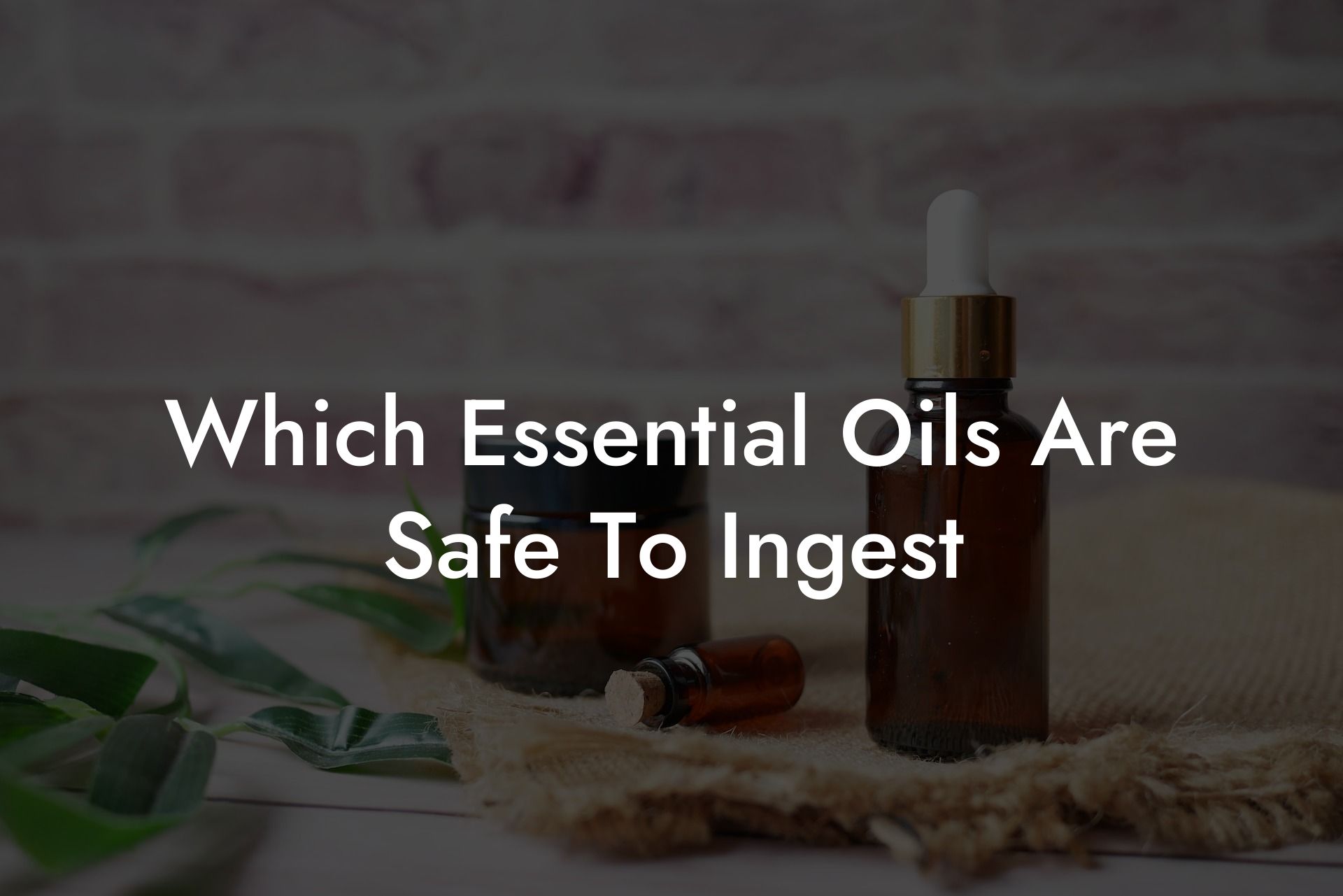Essential oils have been used for centuries for their therapeutic properties, but did you know that some of them can also be safely ingested? Incorporating essential oils into your diet can provide numerous health benefits, but it’s important to know which oils are safe to consume and how to consume them properly.
Table of Contents
In this informative guide, we’ll discuss the essential oils that are safe for ingestion, the benefits they provide, and how to use them correctly to enhance your wellbeing. Let’s dive in!
The Safe Essential Oils for Ingestion
While not all essential oils are safe to consume, there are several that have been approved by the FDA for use as food additives. These oils can be safely ingested in moderation, providing you with a multitude of health benefits. Some of the most popular essential oils for ingestion include:
1. Lemon
Lemon essential oil is known for its antibacterial, antiviral, and immune-boosting properties. When ingested, it can aid digestion, cleanse your liver, and promote healthy respiratory function.
2. Peppermint
Peppermint essential oil is excellent for soothing digestive issues, such as nausea, gas, and indigestion. Additionally, it can promote mental clarity and alertness when consumed in small amounts.
3. Lavender
Though not as common for ingestion, lavender essential oil is approved as a food additive and can provide a calming effect, reduce feelings of anxiety, and promote relaxation.
4. Ginger
Ginger essential oil is ideal for reducing inflammation and improving digestion. It can also help ease nausea and motion sickness.
5. Frankincense
Frankincense essential oil is known for its immune-boosting and anti-inflammatory properties. It can also promote healthy cell growth, making it beneficial for overall wellbeing when ingested.
How to Consume Essential Oils Safely
It’s important to remember that essential oils are highly potent and should be used with caution, especially when ingesting them. Here are some guidelines to follow to ensure safe consumption:
- Always choose high-quality, pure essential oils from a trusted source, like Oshu Oils. Inferior or adulterated oils can have harmful effects on your health.
- Consult with a qualified aromacologist, nutritionist, or healthcare professional before ingesting essential oils, especially if you are pregnant, nursing, or have a pre-existing health condition.
- Dilute the essential oil in a carrier oil, such as coconut oil, before ingesting. This helps to lessen the potency and prevent irritation of your mucous membranes.
- Start with a low dosage and gradually increase as needed, always following the recommended guidelines and paying attention to how your body reacts.
Which Essential Oils Are Safe To Ingest Example:
One simple way to incorporate essential oils into your diet is by adding them to your food or drinks.
For example, you can make a refreshing and invigorating homemade lemonade by combining the following ingredients:
– 1 cup of freshly squeezed lemon juice
– 4 cups of cold water
– 2-3 drops of Oshu Oils’ Lemon Essential Oil
– 1/4 cup of honey or agave syrup (adjust to taste)
Mix all the ingredients together, and enjoy a delicious and nutritious beverage that helps improve digestion and supports your immune system.
Now that you’re aware of the essential oils that are safe to ingest, you can confidently incorporate these powerful natural compounds into your wellness routine. Be sure to consult with a professional before changing your diet, and always choose high-quality oils like Oshu Oils’ artisan essential earth oils for the best results.
If you found this guide helpful, don’t hesitate to share it with friends and family! Be sure to explore other informative articles on the Oshu Oils blog to learn even more about the incredible world of essential oils and aromacology. And lastly, don’t forget to browse our range of expertly blended essential oils to elevate your wellbeing and find balance in your life.





















